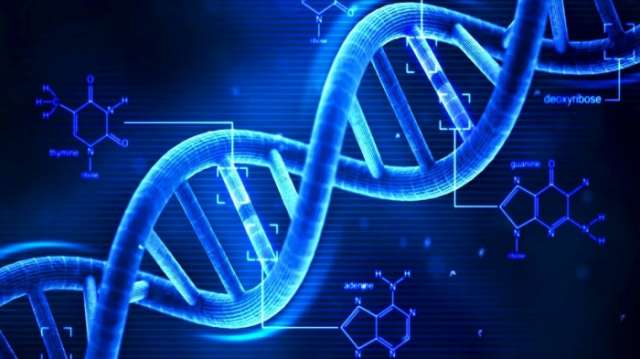Even wilder: Human chimeras aren't the result of futuristic genetic tinkering. They can occur naturally, and some people don't even know that they've doubled up on DNA.
Here's a quick guide to the ways a person can become a human chimera.
It can happen after a bone marrow transplant
Bone marrow is the tissue inside our bones that's responsible for making white blood cells, red blood cells, and platelets. In bone marrow transplants, doctor uses chemotherapy or radiation to destroy all the recipient's diseased bone marrow, then a donor's healthy marrow is put in its place.
The donor's bone marrow will keep on making blood cells that have the donor's DNA, according to a Scientific American report. That's how the recipient becomes a chimera.
In "complete chimerism", 100 percent of the recipient's blood cells have the donor's DNA, a paper in the journal Nature explained. But the blood can also contain a mix of DNA from both the donor and the recipient - that's called "mixed chimerism".
This type of chimera has inspired one some interesting storylines in pop culture, Motherboard reports. The 2015 film Bad Blood is all about a cancer-patient-turned-serial-killer using the DNA in his blood to implicate his bone marrow donor.
It can happen when fraternal twins are in utero
Scientific American explains that, when a mother is carrying fraternal twins, one of the embryos might die very early in the pregnancy. Then, the other embryo can absorb some cells from the deceased one. The resulting baby ends up with two sets of DNA.
Sometimes these chimeras make the news.
In 2015, a man from Washington took a cheek swab paternity test that said he was technically his son's uncle, not his father. Further testing revealed that the man had different DNA in his saliva and his sperm.
Genetic experts believed he was a human chimera, and he had absorbed some of his DNA from a fraternal twin's embryo, BuzzFeed reported.
A woman named Karen Keegan wound up in a similar situation.
Tests said she wasn't the biological mother of her children, but it turned out that the DNA in her blood was different than the DNA in her ovaries. Doctors said her extra DNA most likely came from a fraternal twin - and in 2002 her story became a report in the New England Journal of Medicine.
Since twin loss occurs in an estimated 21 to 30 percent of multiple-foetus pregnancies, it's possible that many people are chimeras, but may never find out.
One genetic expert told BuzzFeed that deliberately testing for chimerism is very difficult, and that there's no real need to do those tests in healthy people.
It can happen during a normal pregnancy
In the 1990s, scientists discovered that a pregnant woman may retain some DNA from her baby, if some fetal cells happen to migrate outside the uterus. The New York Times dubbed it a "pregnancy souvenir" - but it's more scientifically known as "microchimerism."
One way simple way to prove this idea is to test mothers of boys and see if they have any cells with Y chromosomes, which are only present in males.
In one study, researchers sampled tissue from 26 women who had died during pregnancy or just after giving birth to a boy. In every single sample, they found low concentrations of cells with Y chromosomes, according to the New York Times.
Another study looked at the brains of mothers who had boys. They found traces of male DNA in 63 percent of the women - even in a woman who was 94 years old, Scientific American reported. This suggests that microchimerism might last a long time post-pregnancy.
One microchimerism expert told The New York Times that scientists believe it's "very common, if not universal" among pregnant women. Just add it to the list of fascinating things that happen to a woman's body during pregnancy.
More about: #DNA
















































